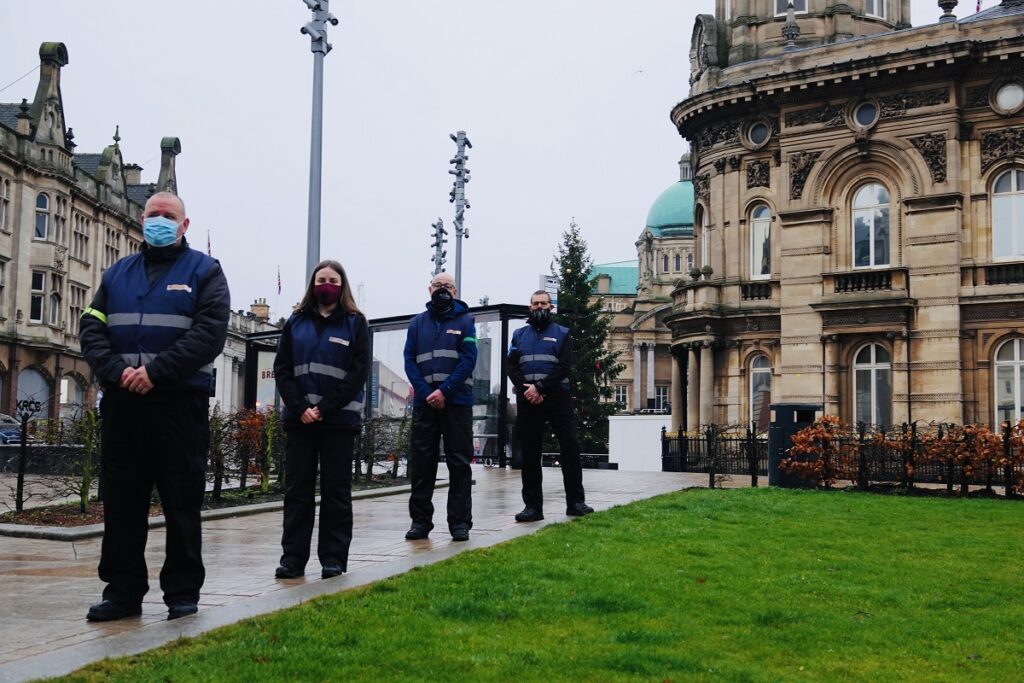2020 has been tough, really tough. The pandemic has reached every corner of the globe with countries, cities and communities having to respond, almost daily, to new challenges and threats posed by coronavirus.
The story in Hull has been no different.
In July, the city was the first in the UK to introduce street marshals – a scheme which would later be supported and rolled out nationally by government.
Back in the summer, with the city preparing for the reopening of hospitality businesses following the first national lockdown, the role of the newly created marshals was key.
“Businesses and people in Hull, and all over the UK, had sacrificed so much to protect our communities against the spread of the virus”, said Councillor Daren Hale, deputy leader at Hull City Council.
“It was therefore vital that, when restrictions were eased, we did everything we could to try and keep the infection rate down and keep businesses open – the street marshals were a vital part of our plan.”
We knew that the vast majority of our businesses and residents would continue to act responsibly, so the role of the marshals was essentially one of support and reassurance. Put plainly, we wanted visible bodies out on the streets, supporting residents and businesses and encouraging social distancing and other safe practices.”

Since July, Hull’s team of 20 street marshals have completed more than 4,000 hours of work, working shifts covering seven days a week.
Holly Lewis is one of the street marshals helping to keep the city safe.
She said: “Wherever we are we try to ensure that people are following the guidance and wearing masks.
“When people go into shops we try to ensure that customers are wearing masks, if there is a queue outside we make sure it is socially distanced – general guidance basically.
“The attitudes of people haven’t really changed. Some people are a bit put out by us because they think we are there to fine them, so it’s just a case of reassuring them that that is not what we are doing and that we are here to help.”
